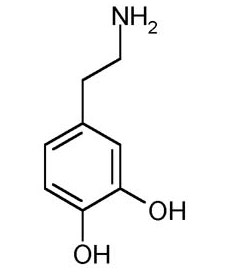
Taking a break from technology is a fine idea, but we don’t need a pseudoscientific new name for it: dopamine fasting. Launched with viral Silicon Valley memes, online reports, and articles in the New York Times and elsewhere, dopamine fasting is now a thing. Basically, the idea is to temporarily deprive oneself of the usual stimulations of life — largely electronic these days — in order to re-sensitize one’s brain.
Since several parties popularized the term, they wrestle over its definition. Some take an ascetic, global view of stimulation-avoidance, while others limit the fast to electronic media. Getting too excited over these battles stimulates dopamine, of course. Perhaps it’s best not to worry about it.
Neuroscientists point out that the name is misleading. Dopamine isn’t uniquely implicated in habituation to stimuli or behavioral addictions (although it is certainly involved), and naming the neurotransmitter doesn’t advance our understanding of the process.
Consequently, it’s no surprise pundits debunk the idea as repackaged common sense. Sure, it’s refreshing to step away from the rat race and attention-grabbing tech. But we already have names for that: relaxing vacations, a “mental health day”, picturing your happy place, meditating, taking a walk to clear your head, the sabbath, sabbaticals, retreat weekends, and so on. The concept is as old as humanity. This, in turn, leads proponents to defend their baby with heartfelt but not entirely rational distinctions between dopamine fasting and these other activities.
I’m in the debunking camp. I agree with one of the vocal proponents of dopamine fasting, Cameron Sepah, who concedes: “The term is technically incorrect, but ‘stimulus control 101 for dealing with addictive behavior’ just doesn’t have the same ring to it.” In other words, the term “dopamine fasting” is hype, referring (with false, dopamine-inducing excitement) to an old, well-understood behavioral practice.
It’s also the latest example of misleading the public with whiz-bang neurobiological language. This is rampant in modern psychiatry, where the mere existence of functional brain imaging (allowing us to visualize metabolic activity in the brain) makes the field “biological” — even though our biological treatments haven’t improved as a result, and remain wholly symptomatic and empirical.
Attach a “neuro-” prefix or a brain chemical to your field of interest, and the world beats a path to your door. I recently joked that if we re-cast psychotherapy as “verbal neuromodulation” the field would enjoy newfound popularity and research funding. This is essentially what the advocates of dopamine fasting did.
Selling products with pseudoscience isn’t new. Old-time cigarette ads, believe it or not, touted their health benefits. Athletic clothing has been over-hyped to the tune of multimillion-dollar false-advertising settlements. Cosmetic ads frequently invoke essentially meaningless scientific terms.
The difference now is that social media has made the “marketplace of ideas” a real marketplace. Popularizing ideas, and by extension oneself, now demands the same promotional tactics previously used to sell cigarettes and soap. Can you, in some convoluted way, tie your idea to neuroplasticity? dopamine? cellular regeneration? If so, you’re well on your way to becoming an influencer. Yes, you’ll be pandering to the attention economy, and presumably stimulating and thus depleting everyone’s dopamine in the bargain. But don’t let that stop you.

Leave a Reply